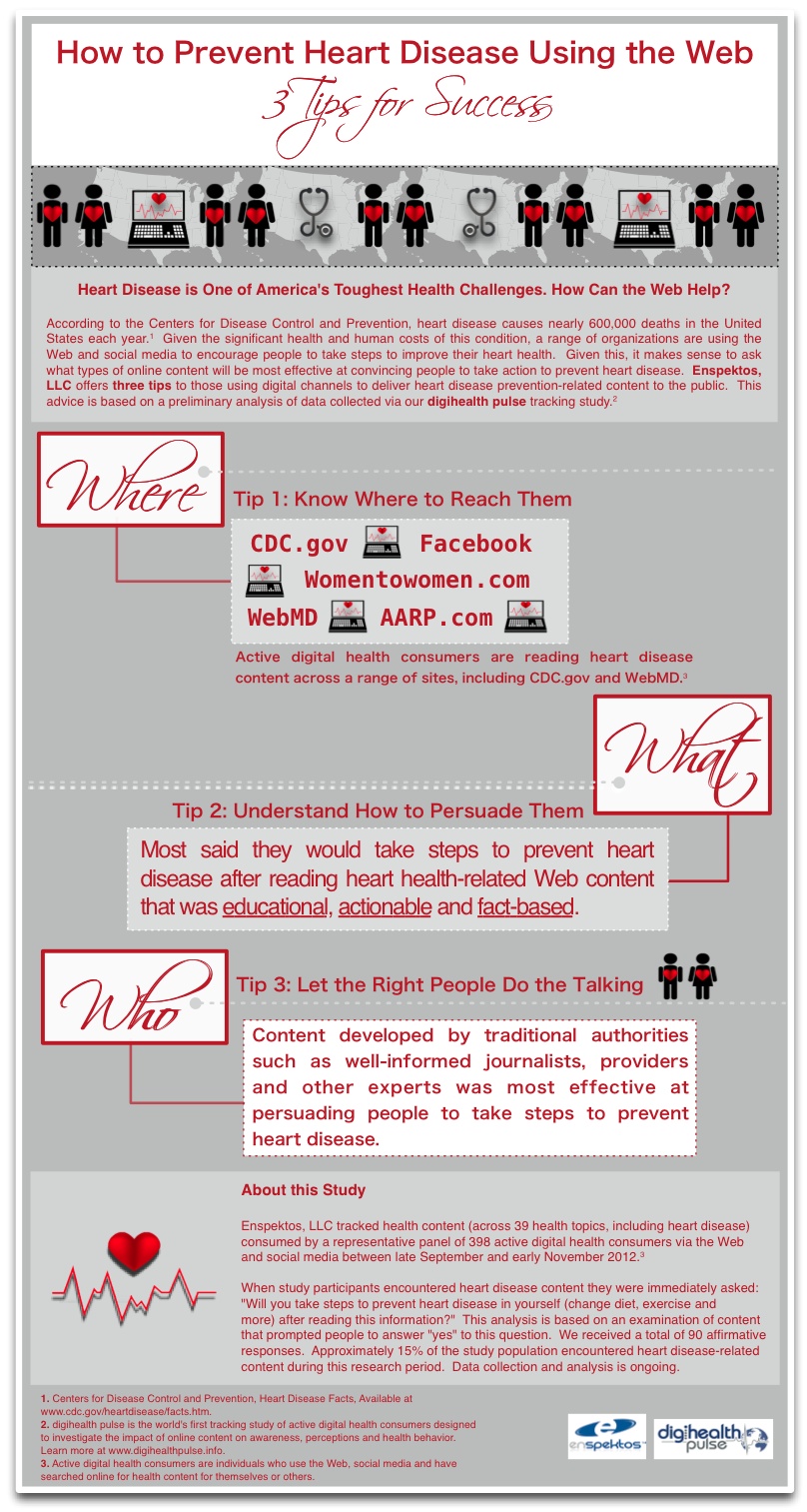In the U.S. one in every three deaths is related to heart disease or stroke, which, according to the CDC, equals 2,200 deaths per day or 800,000 deaths per year. Figures like this drove Enspektos to look at where people are searching for and encountering heart disease related information online. To take it one step further, we wanted to know if this online content was going to change their heart health behavior and lead to people taking preventative measures than can reduce the risk of heart disease and stroke.
In the U.S. one in every three deaths is related to heart disease or stroke, which, according to the CDC, equals 2,200 deaths per day or 800,000 deaths per year. Figures like this drove Enspektos to look at where people are searching for and encountering heart disease related information online. To take it one step further, we wanted to know if this online content was going to change their heart health behavior and lead to people taking preventative measures than can reduce the risk of heart disease and stroke.
An early analysis of data collected via digihealth pulse gave us specific insights into creating online content which is most successful at persuading people to take steps in preventing heart disease.
Tip 1: Know Where To Reach People Who Are Searching for Heart Disease Information
digihealth pulse data indicated people were relying on sites such as CDC.gov, WebMD, AARP.com and womentowomen.com for relevant, credible heart disease information.
Tip 2: Understand How to Persuade People to Take Action to Improve Their Heart’s Health
After carefully looking at the websites that persuading digital health consumers to take action around their health we found that content that is educational, actionable and fact-based is most effective. To read specific examples of this content click here.
Tip 3: Rely on Experts for Heart Disease Content Development
Heart-health content produced by medical professionals, government officials, and well-informed journalists was rated highly credible among our panel of digital health consumers and was most likely to influence behavior change and lead people to say they would engage in heart health improvement activities.

Check out more information on this study and these tips by clicking here.









